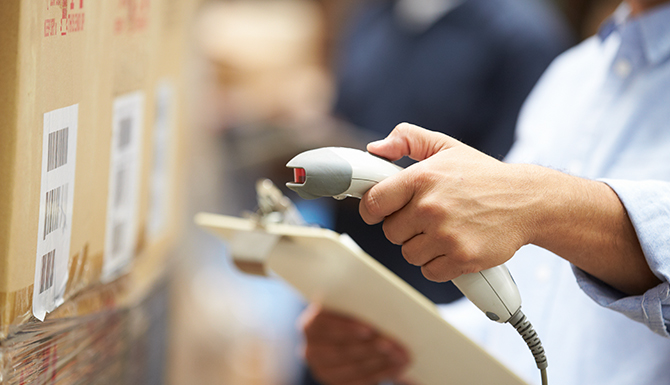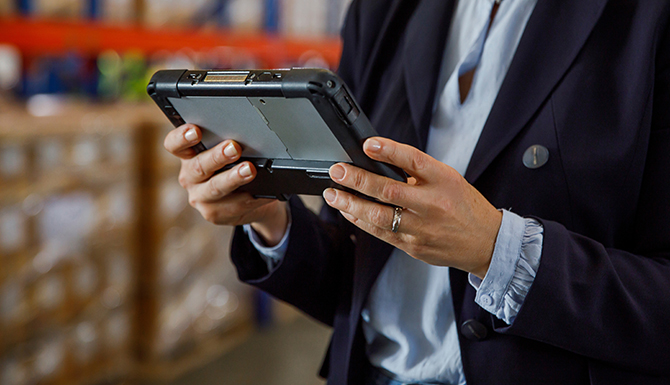Establishing the World’s First 100% Online Customs Clearance System
-
The World’s First 100% Online Customs Clearance System Offering the Fastest Service Among WCO’s 177 Member Countries
Quick Service Delivery Through an Online Customs Clearance System
To ensure efficient processing of export-import customs clearances, the Korea Customs Service developed UNI-PASS, the world’s first system to enable 100% online customs processing. By going fully digital, it allows for rapid customs processing, significantly reducing costs in the logistics industry where speed is crucial. UNI-PASS offers the fastest service among the 177 member countries of the World Customs Organization (WCO) with a 24-hour clearance system that ensures a seamless logistics environment. For instance, export clearance took more than a day before the introduction of UNI-PASS but now takes only 1.5 minutes; import clearance that used to take more than two days now takes only 1.5 hours, customs refunds that previously took over three days now take only 5.2 hours, and customs payments that used to take over four days are now completed in 10 hours. Through UNI-PASS, you can benefit from the efficiency of time reduction, accessibility via Internet and mobile services, instant reporting and verification, and international compatibility incorporating global standards to ensure fast, reliable services.

주요사업-물류서비스-UNI-PASS 도입 후 시간소요 - 구분, UNI-PASS 도입 후 시간소요 Category Time Required After the Adoption of UNI-PASS Export Clearance: One day ▶1.5minutes Import Clearance: More than two days ▶1.5hours Customs Refunds: More than three days ▶5.2hours Customs Payments: More than four days ▶10hours -
AIRCIS: An Air Cargo Information System Offering an At-a-Glance View of Air Cargo Information, Supporting Collaboration Among Air Cargo Stakeholders
Supporting Collaboration Through an Integrated Information Network
AIRCIS serves as a standardized process-based air cargo information infrastructure system facilitating collaboration among private-sector air cargo stakeholders such as airlines, forwarders, ground handling companies, and bonded transporters. It also provides B2G services in the cargo domain under the jurisdiction of the Ministry of Land, Infrastructure, and Transport. Built upon a cooperative framework between the Ministry of Land, Infrastructure, and Transport, Incheon International Airport Corporation, and national airlines, AIRCIS supports standardized business processes and real-time logistics information integration; thus contributing to the enhancement of competitiveness in the air cargo industry by reducing logistics lead times. Key services provided by AIRCIS include schedule information inquiries, cargo booking and tracking, inquiries on terminal operation information, and D/O inquiries. These services are made available in the form of EDI, web, and open API, offering a range of information to various air cargo stakeholders.
Direct Access to AIRCIS Website Key Services of AIRCIS
Key Services of AIRCIS- Schedule Information Inquiry
- Cargo Booking and Tracking
-
Inquiry on
Terminal Operation Information - D/O Inquiry
-
Supporting Paperless Applications for Import Cargo Release
Enhancing Cargo Release Lead Time and Maximizing Efficiency
Since April 2021, AIRCIS has initiated an EDI-based import cargo release application service, promoting and supporting paperless processes within the air cargo logistics chain. During the application for import cargo release, the paper documents traditionally submitted by bonded transport operators to the cargo terminal are replaced electronically, eliminating the need for printing and manual delivery of paper documents; thus maximizing the efficiency and reducing the lead time for cargo release. In the future, the scope of paperless operations will be expanded to support the 100% paperless processing of all import cargo stages.

-
Providing Compliance Documentation Electronically
Enabling Safer and More Systematic Compliance
Through the e-NOTOC service, AIRCIS offers web-based NOTOC (Notice to Captain) authoring tools and web and EDI-based dangerous goods reporting services for airlines. This ensures safer, more systematic compliance with the legal requirements that airlines must report. The information on dangerous goods loaded onto aircraft—linked and aggregated through AIRCIS—assists in fulfilling the government’s role as an aviation security control tower. In addition, AIRCIS’s statistical services provide logistics-related policy information to the government.

-
Establishment of Future-Oriented Smart Cargo Terminal Infrastructure Planned
Introduction of Future-Oriented Air Cargo Processes and Establishment of a Test Bed
Incheon International Airport has signed a “Smart Cargo Terminal Development MOU” with Korean Air and Asiana Airlines to introduce future-oriented air cargo processes and establish a test bed within the cargo terminal. A working group composed of field operation experts will operate in collaboration with joint research initiatives to develop future-oriented operational models. By integrating 4th industrial technologies such as unmanned robots, artificial intelligence (AI), and big data into the entire air cargo handling process, the test bed will be established by 2027. Through the establishment and operation of the test bed, the financial viability and IT technology suitability of cargo terminal operations will be evaluated, leveraging various kinds of operational know-how to initiate the operation of the future-oriented smart cargo terminal and relocate airlines by 2030.

- Telephone : +082-32-741-2277
- Email : cargo@biz.airport.kr
- Managing department : Cargo Marketing Team

